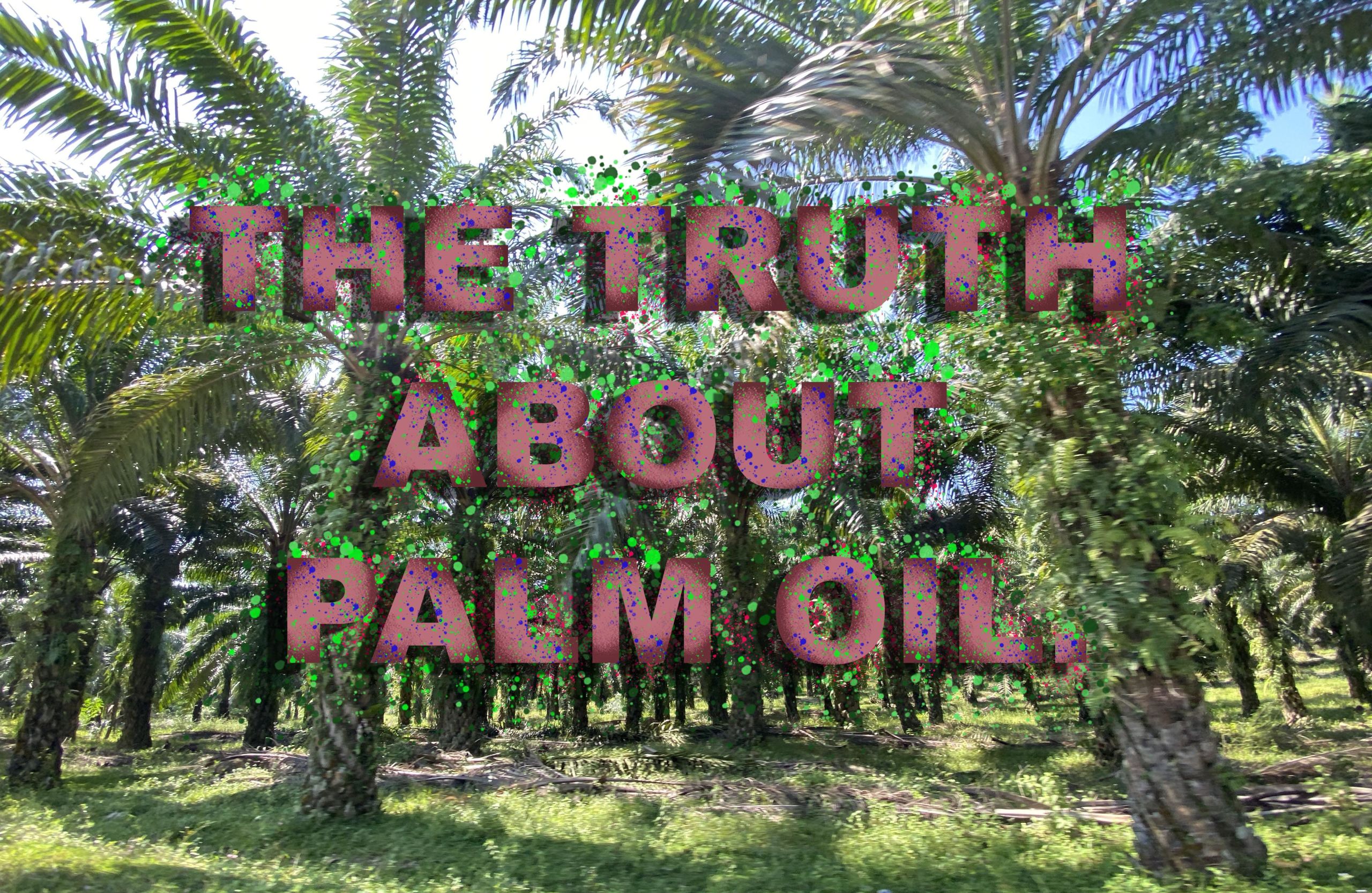
Palm oil trees originally came from West and South-West Africa. They were introduced to Indonesia and Malaysia in the 19th and early 20th century, and today they are responsible for 85% of the world's supply of palm oil. It's a type of edible vegetable oil that is similar to sunflower oil and rapeseed oil.
One of the reasons why palm oil is so popular, is because it is incredibly versatile. At room temperature the oil maintains a semi-solid from which helps to keep spreads like Nutella spreadable. It also does not oxidise palm oil a key ingredient that can expand the lifespan of a product. Since palm oil is has no odour or colour, it can be added to food without changing it's original smell or look. These are just some few reasons why palm oil is one of the most popular oil on the market today.
An example of a smallhold plantation in Linggi, Malaysia.
An example of a smallhold plantation in Linggi, Malaysia.
Palm oil trees grow naturally in tropical climates but they have often been grown in plantations to maximise the output of oil. In countries like Malaysia the trees are produced in large plantations run by massive corporations like Sime Darby or on small farms known in the industry as smallholders. While this might not be common knowledge, smallholders play a key role in the production chain of palm oil. A role which will be explored in more detail in following chapters.
For now, I want to know how many products actually contain palm oil. To help me understand that I spoke to Fay Richards from the Roundtable on Sustainable Palm Oil (RSPO) and she explained just how common the oil is:
From ice cream to toothpaste, palm oil is in nearly everything we buy and use. While one reason for the oils popularity lies in its unique chemical compound, there is another reason why palm oil is as popular as it is. That reason being how productive it is as an oil producing crop.
A palm oil plantation will produce four to ten times more oil per land than any other type of vegetable oil. This is a huge incentive for farmers in developing countries, because there is such a high demand for the vegetable oil and because it is so efficient it tends to be the crop of choice for farmers.
How much do you know about palm oil? Take this quiz to find out:
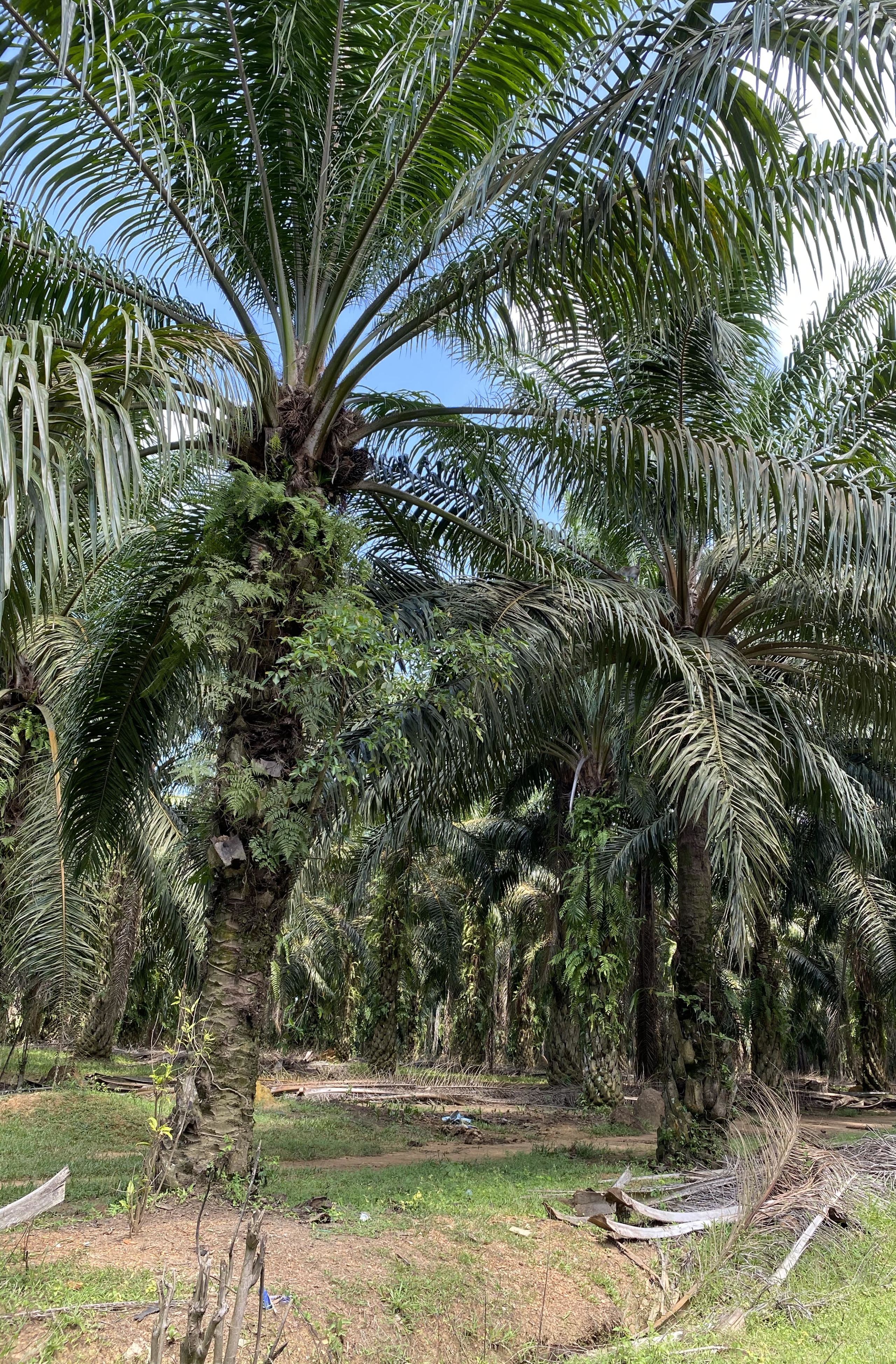
Palm trees in a smallholder plantation in Malaysia.
Palm trees in a smallholder plantation in Malaysia.
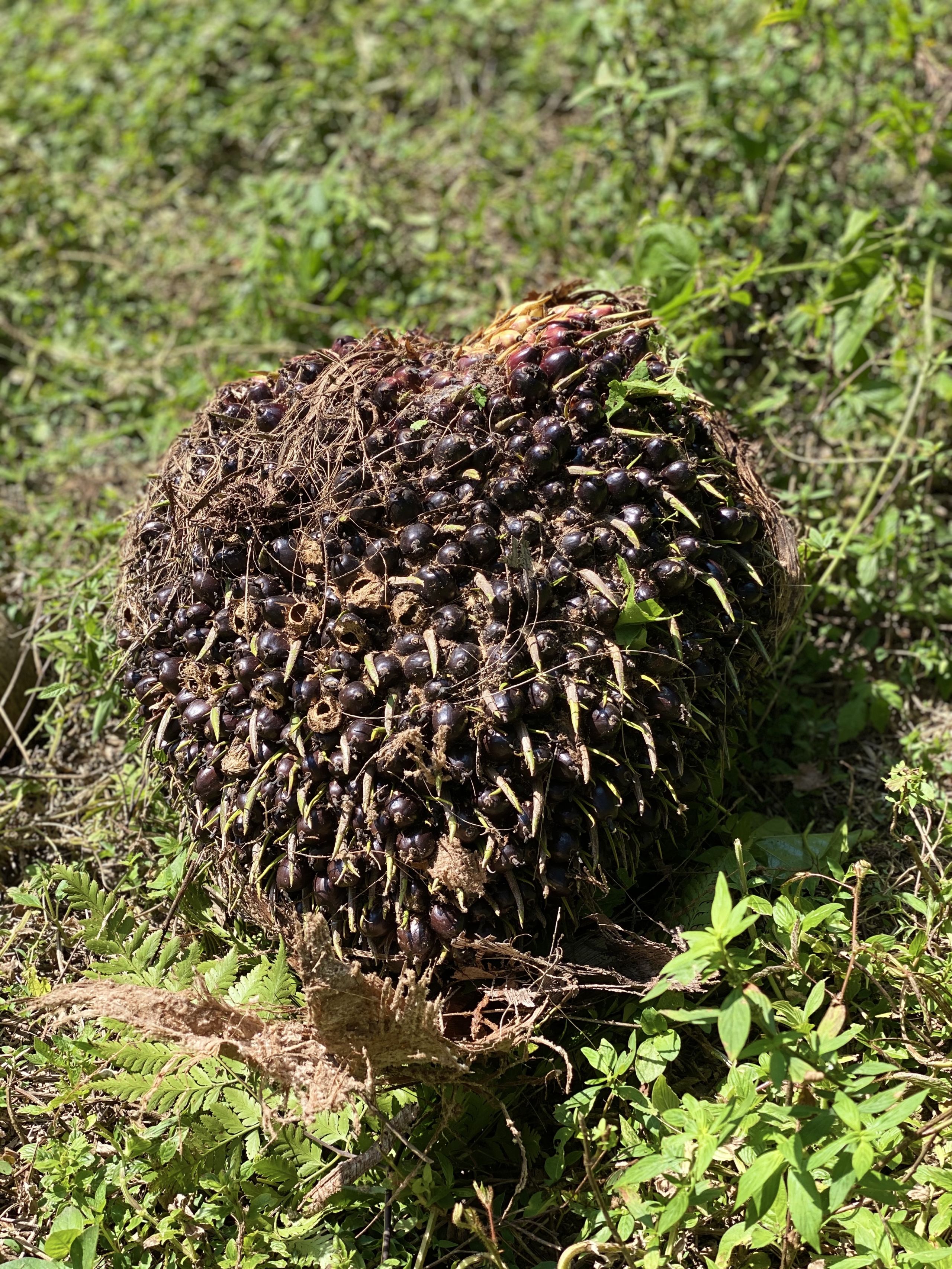
An oil palm stem, one stem can weigh as much as 10kgs.
An oil palm stem, one stem can weigh as much as 10kgs.
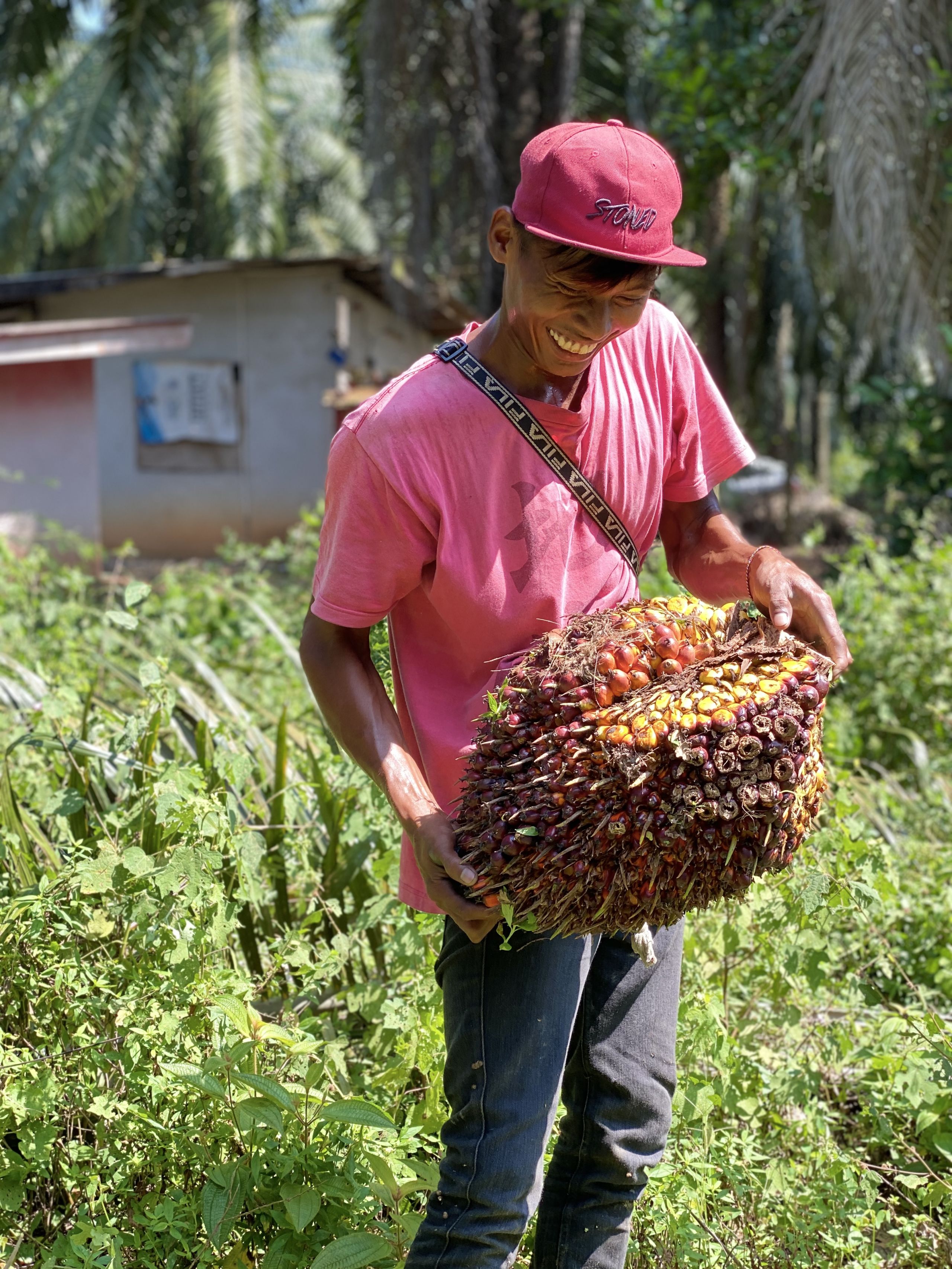
A farmer holding up a freshly cut palm oil stem full of ripe kernels.
A farmer holding up a freshly cut palm oil stem full of ripe kernels.
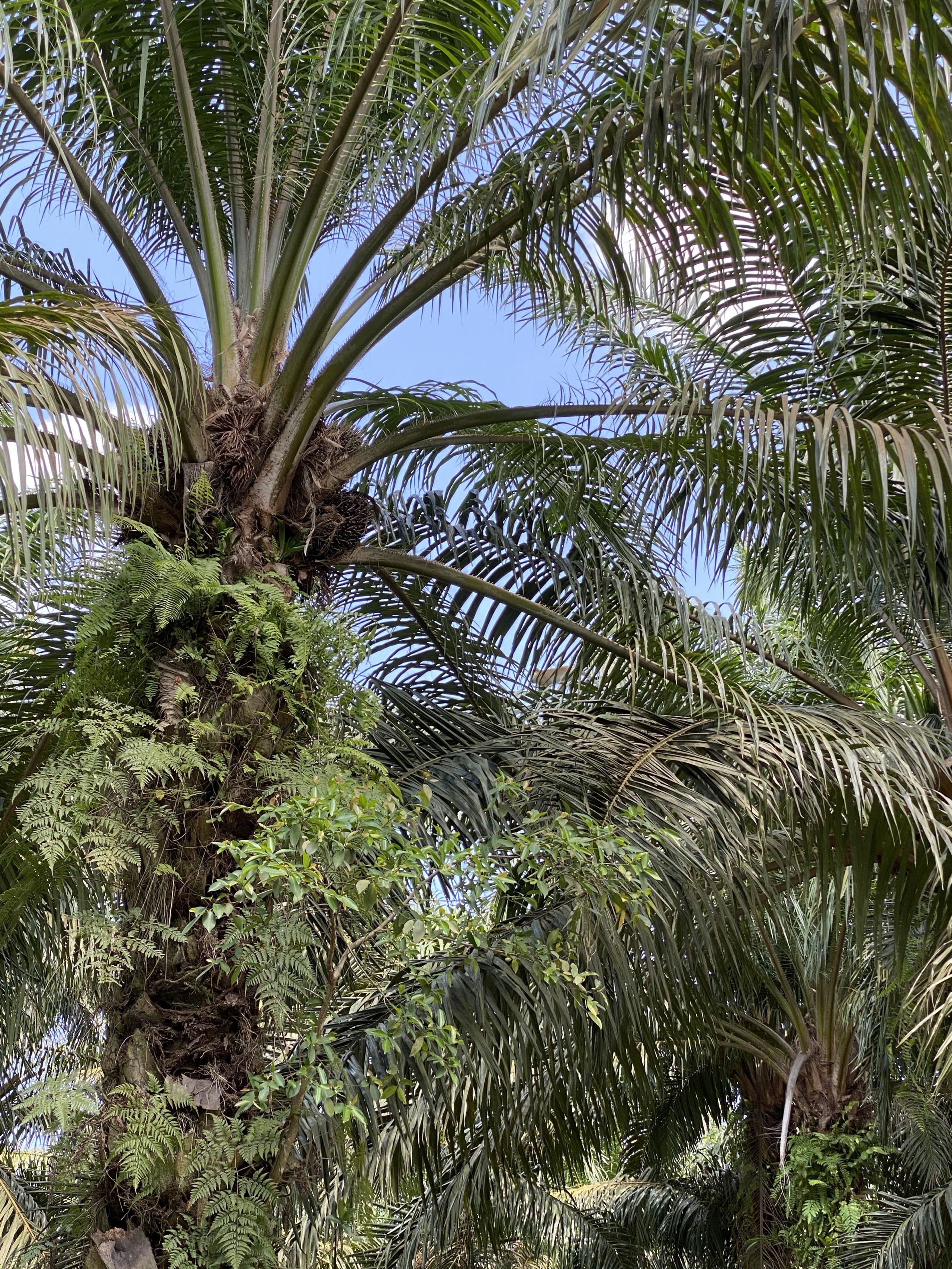
A close up of a palm oil stem on a tree.
A close up of a palm oil stem on a tree.
Who are the
RSPO?
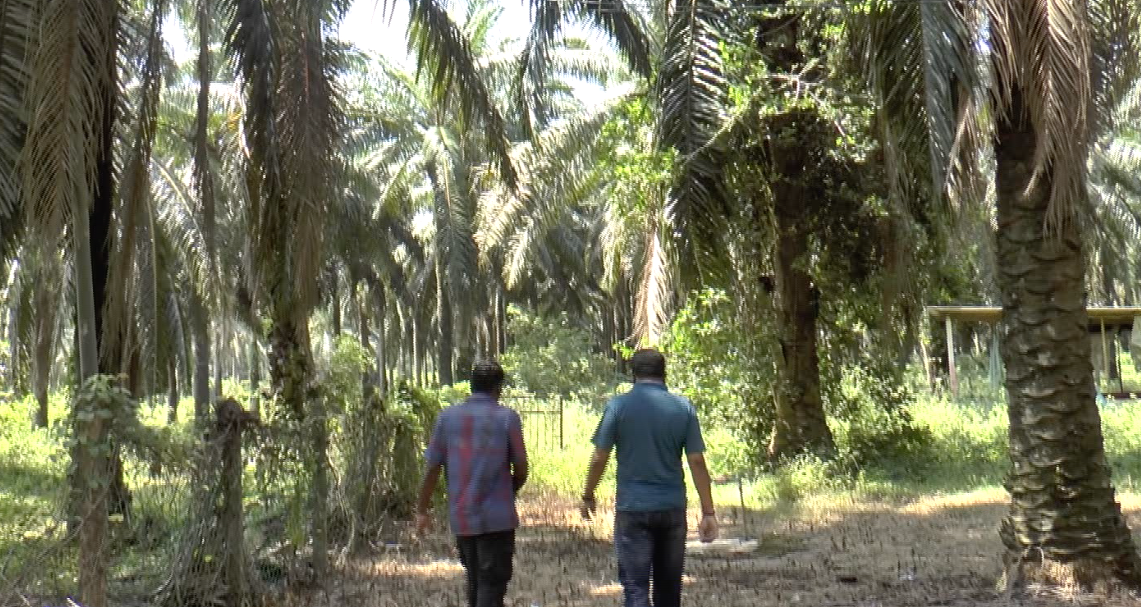
Founded in 2004, with the objective of promoting the growth and use of sustainable palm oil the RSPO or the Roundtable on Sustainable Palm Oil, represents the largest independent standard for sustainable palm oil production. Currently they have over 4,000 thousand members in 94 different countries. I wanted to know more about the organisation and asked Fay to help me understand what sustainable palm oil really was:
The not-for-profit organisation highlights that certified, sustainable palm oil protects the environment and local communities.
Fay explains to me that a total ban would not work because in developing countries the industry is the key for many communities. There are millions of smallholder farmers who depend on producing palm oil for their livelihoods. If the issue is not a total boycott then we should look into using the most environmentally and socially conscious ways to produce palm oil. And that's where the RSPO comes in, as Fay explains:
The RSPO lays out guidelines that palm oil producers need to follow in order to meet their sustainability standards. Most products made with sustainable palm oil are labelled with an eco-label from the RSPO, this is meant to help consumers differentiate between sustainably grown palm and conventionally grown palm oil. But are they doing enough? We'll take an in-depth look at the issues surrounding the RSPO in a latter chapter. For now, let's take a look at where palm oil is grown and cultivated.
Palm oil trees tend to grow in tropical areas around the Equator. Indonesia and Malaysia is the epicentre of palm oil production in the world. They are responsible for 85% of palm oil found in the global market. Interestingly however, the trees are not native to Asia according to historians, palm oil trees came from West and South-West Africa.
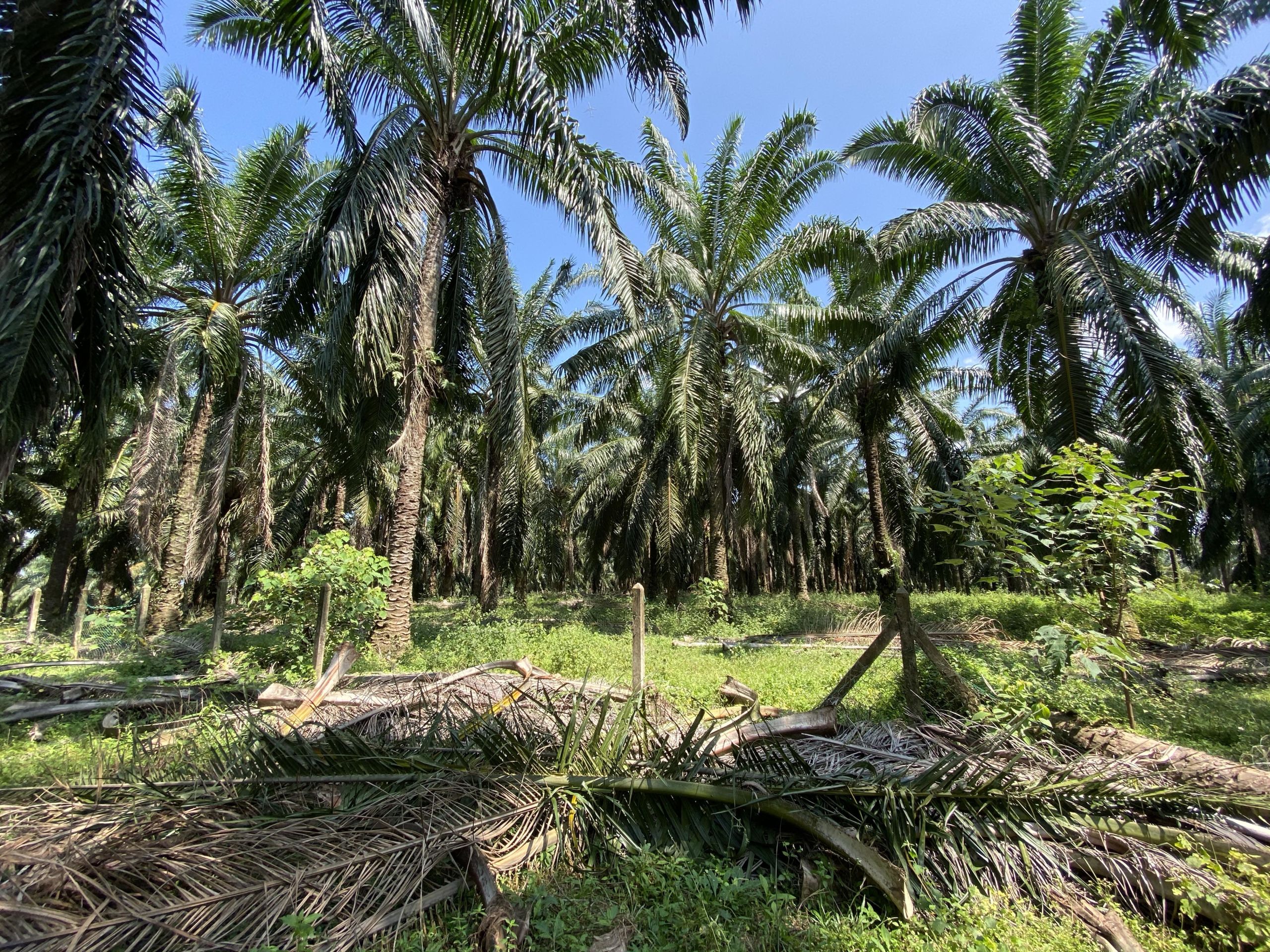
A smallholder plantation in Malaysia.
A smallholder plantation in Malaysia.
By the turn of the 20th century, oil palms had been shipped to Indonesia and in the late 1930s, they covered just over 250,000 acres of land. With the advances made in the agricultural field, plantations started to produce greater yields. On top of that, the popularity and many uses of palm oil led to an increase in the amount of investments made in the industry. According to a report by The Guardian, "producing nations viewed palm oil as a poverty reduction scheme, while international finance organisations view it as a growth engine for developing economies."
Today, more than 3 billion people in 150 different countries use various products that have palm oil in it. Globally, consumers use on average around 8kgs of palm oil and the industry is steadily growing. In Malaysia, there are two ways palm oil is produced in two different ways, in large plantations owned by corporations and smallholder farms.
In my research, I had come across the term "smallholders" a lot. Essentially there are small farms where the majority of labour while the farm provides the family with their principle source of income. What I did want to find out was how big of a role did they have in the entire industry as a whole. To help me understand, I reached out to Ashwin Selvaraj. He is the head of the RSPO's smallholder programme and he explained:
More than 3 million smallholders or small scale farmers make a living from palm oil. Their entire livelihoods depend on the industry, which means a boycott of palm oil would jeopardise their financial stability. If millions of farmers depend on the industry, the answer is not a ban but maybe introducing sustainable growing standards to the farmers. That is exactly what Ashwin is working on, the RSPO already has clear sustainability standards that large corporations like Nestle abides to, they are now in the process of introducing a new smallholder standard.
I asked Ashwin what was the main aim of this new programme and to help me understand why it's important not only to the farmers, but also to consumers who are concerned about their palm oil consumption.
The idea that smallholders could also run sustainable plantations seems great but surely there are quite a few challenges in place. One major issue Ashwin highlighted, "As a small farmer you don't wake up immediately thinking about climate change, although you’re affected by it your main goal is about securing a stable livelihood."
The nature of small scale farms means that the livelihoods of farmers are directly tied to the output of their farms. It can be an expensive and time consuming process for them to change the way they run their farms. But as Ashwin tells me they have come up with a programme that takes into consideration their issues and caters to the farmers needs:
At this point in time, there are over 5000 farmers across south-east Asia that are fully certified according to this programme. While this number is very impressive, Ashwin admits to me that there is still a long way to go for them because in Indonesia alone he estimates there to be around 2 million smallhold farmers who are not certified. But why should farmers care about this initiative and why should they participate in it? Fay explains:
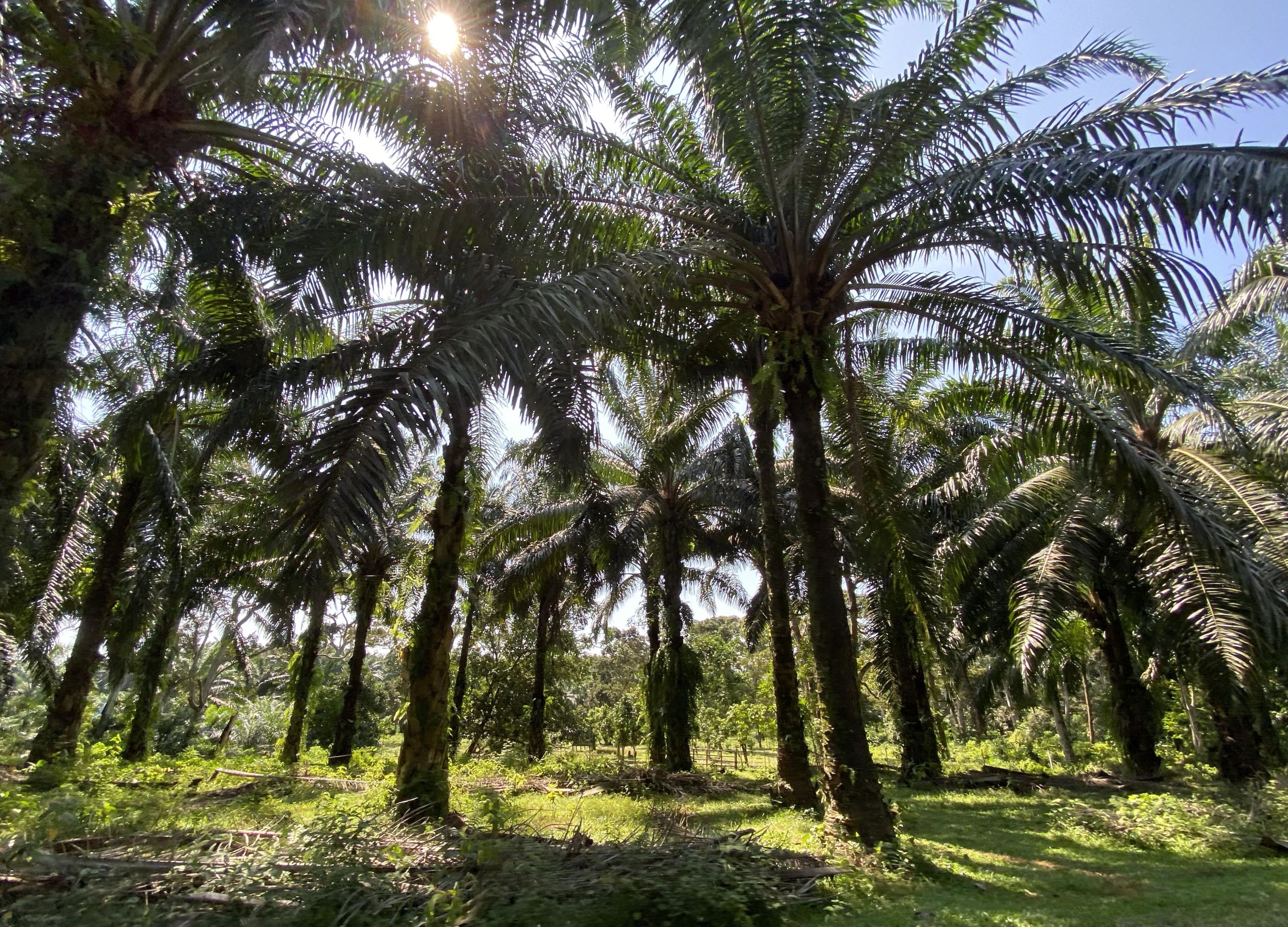
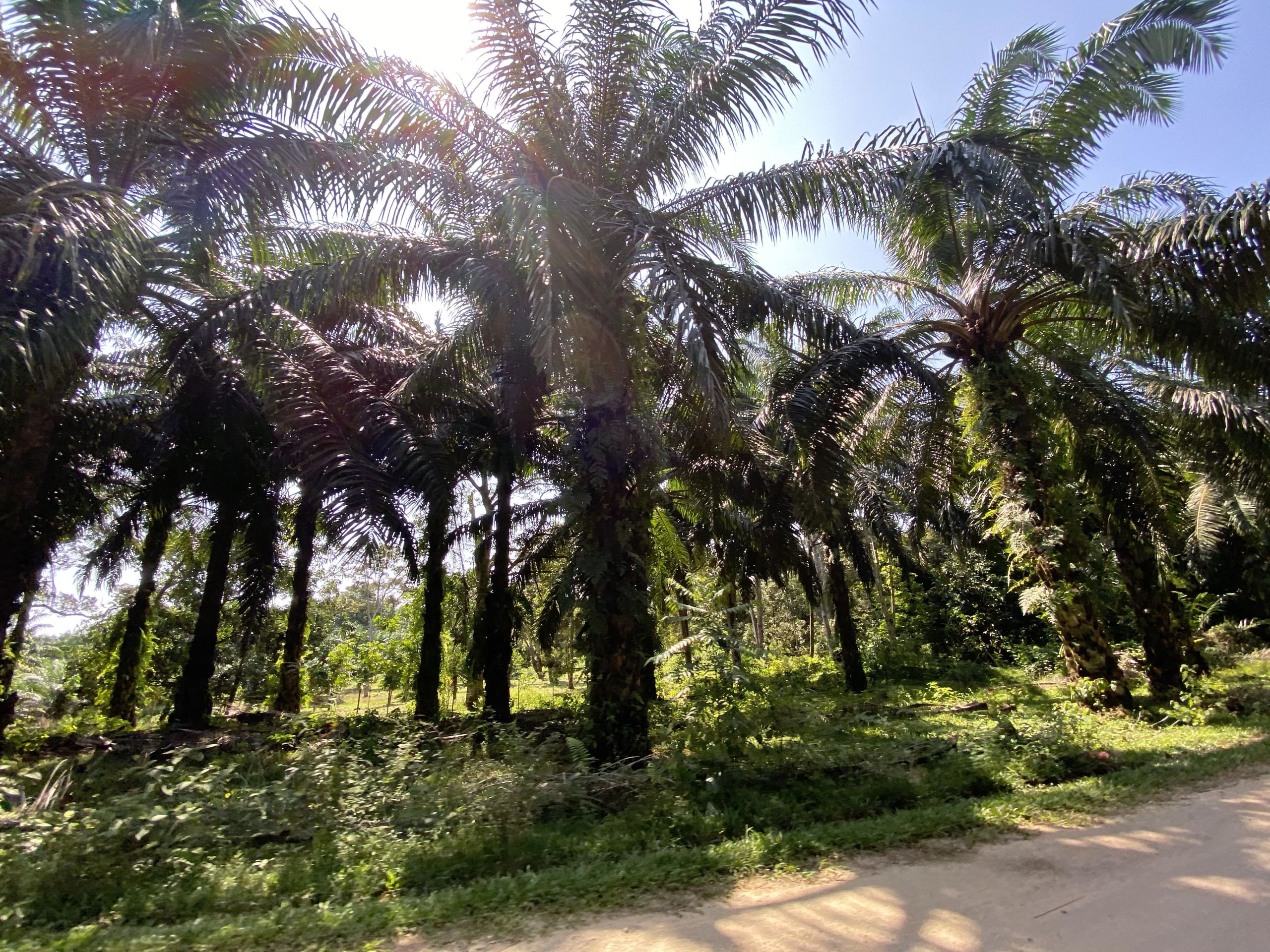
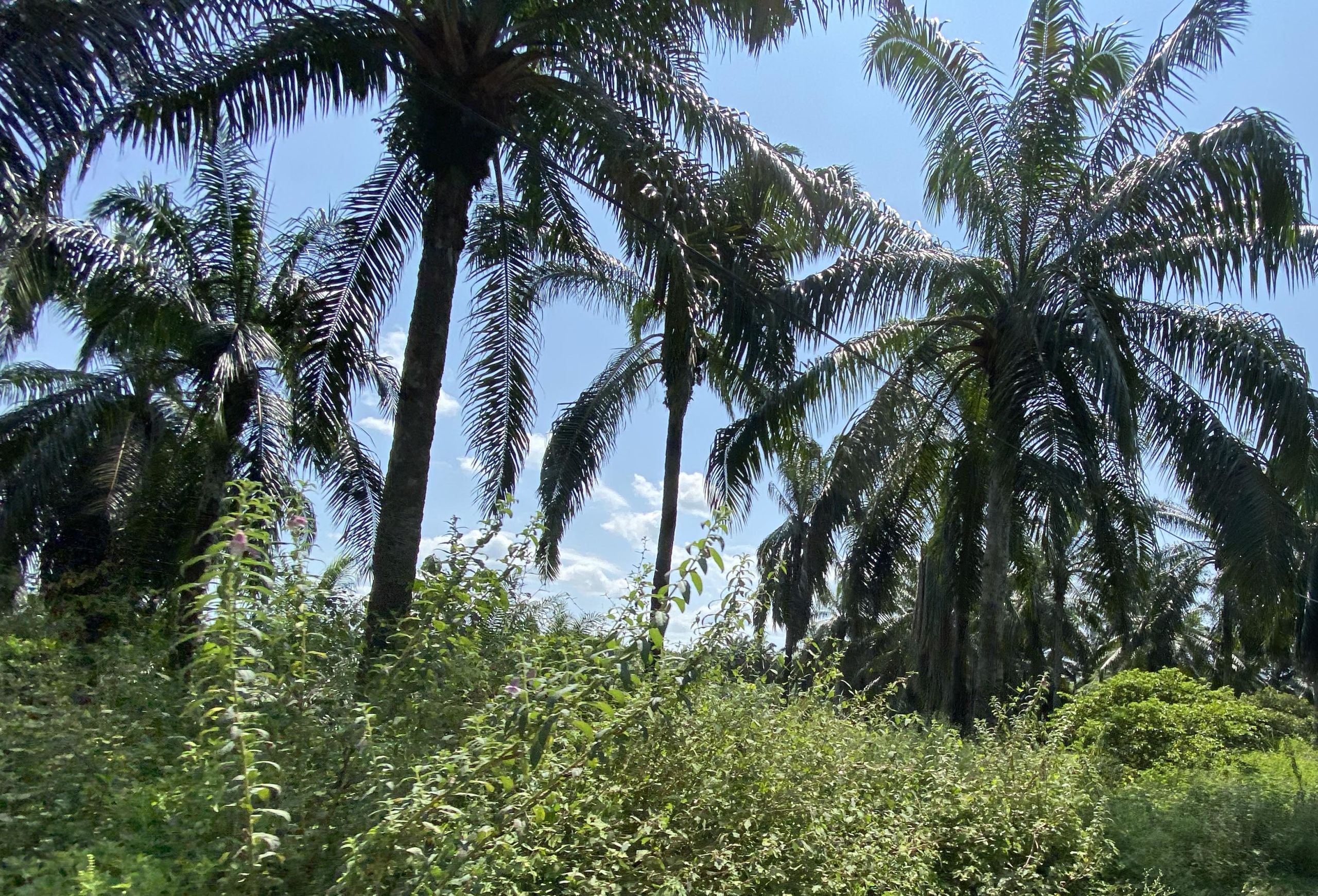

For many people who live in countries that produce palm oil, the industry is the easiest way for them to support their families. One such farmer is Murugan Supaya, he lives in the town of Linggi in Negeri Sembilan, Malaysia and works on a palm oil plantation.
When I spoke to him, he explained to me how important the trade was to the town. It affected almost every industry and business there, from the mechanics to the restaurant. They were all connected in some way to the palm oil trade because at this time, that is the most prosperous industry to be working in. This was made even more evident when we drove into the town, palm trees were everywhere. They lined the road almost as though they were welcoming us into their home.
The reason why I travelled to Linggi, was to speak to someone who worked in the palm oil industry. I wanted to get to the very core of the industry and see for myself who was the most reliant on the trade. Who, if a total ban was put in place would have the most to lose.
Murugan started off by introducing himself and explained that the plantation he works at has been around for nearly 50 years and it used to grow rubber trees. One day the owners decided a change was needed and cut down all the rubber trees, they replaced them with palm oil. Currently the entire plantation, which has 500 hectares of land is used to grow and cultivate oil palm trees.
Murugan explained what his role is in the plantation and what they do there:
He estimates that there are 1,400 trees for every hectare of land. Which means that this plantation has about 700,000 trees producing palm oil. While that amount is very small compared to larger plantations owned by corporations, it plays a part in supporting the local economy.
A kernel of palm oil that is ready is cut down by one of the workers.
A kernel of palm oil that is ready is cut down by one of the workers.
The whole kernel is much larger than I had imagined, one individual stem of oil palm weighs around 10kg. The individual kernels were bright red and practically shone in the sun. It takes a certain level of skill to cut down the kernel, the worker used a sickle attached to a very long stick. After a couple of tries, a whole bunch tumbled down from the tree.
Palm oil worker using a very long stick and sickle to cut the kernel from the tree.
Palm oil worker using a very long stick and sickle to cut the kernel from the tree.
Murugan said that the kernel will be sent to a local factory where it will be processed and refined before it's exported.
While it was clear that the plantation was thriving, I wanted to ask Murugan about one major issue people had with palm oil plantations; did he or any of the workers kill any animals that wandered into the plantation? He chuckled and said that in his time working here they never harmed any animal and that the only ones that ever wandered into the area were mice or rats.
It is clear that this plantation does not solely prioritise the output of palm oil, the workers care about the natural biodiversity of the local area. As I stood there I noticed a couple of monkeys swinging around the treetops.
A small plantation like this one plays an important role in the entire production chain. They support the local economy of small towns like Linggi, by providing a steady flow of income for the townfolk. I asked Murugan how important his job was to him and other workers:
To him and other workers they depend on the industry so that they can put food on the table for their families. A ban on palm oil would be devastating to small plantations like this one. Workers like Murugan would lose their jobs and a steady income. Making it impossibly difficult for them to support their familes, educate their children and even to buy enough food to feed their families.

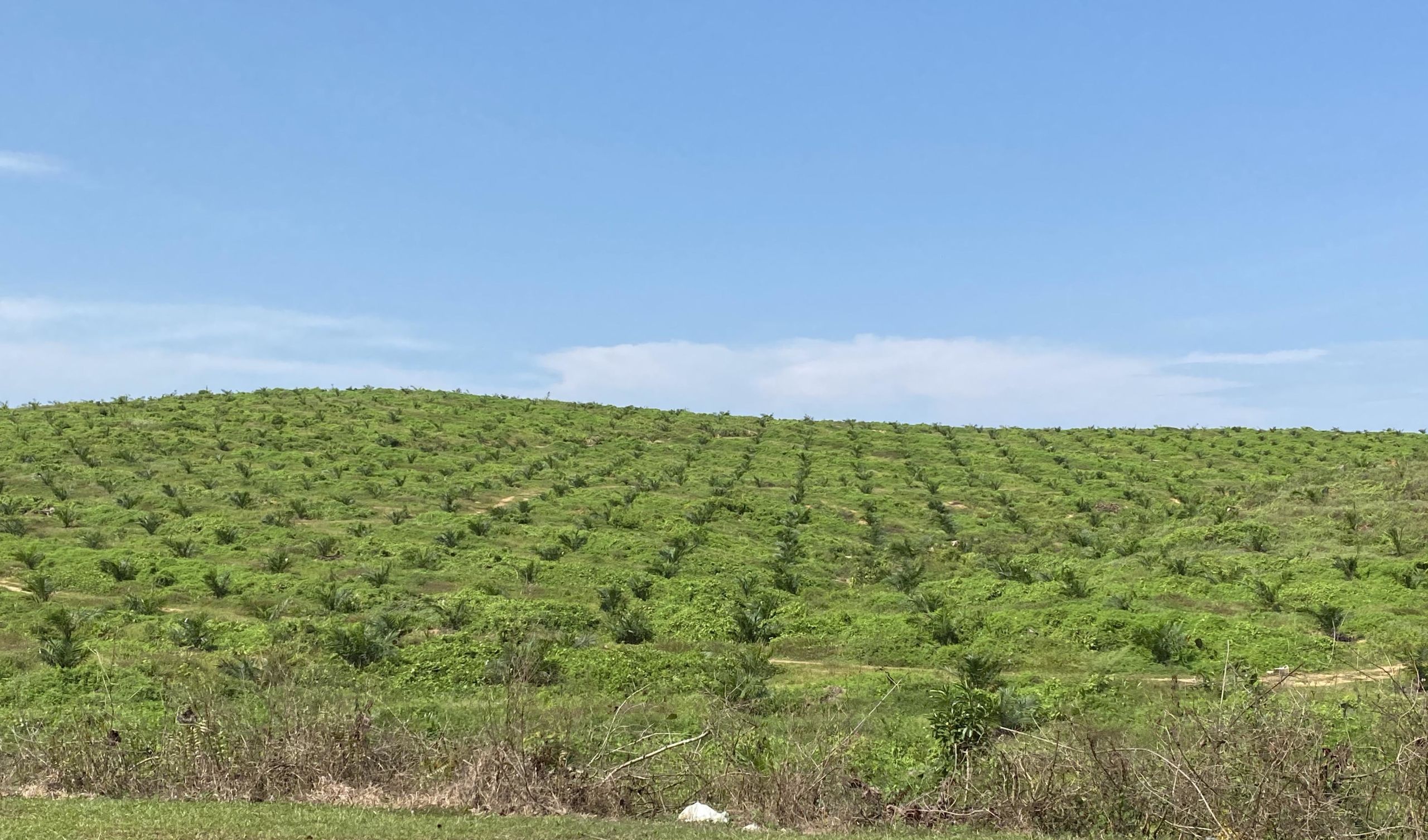
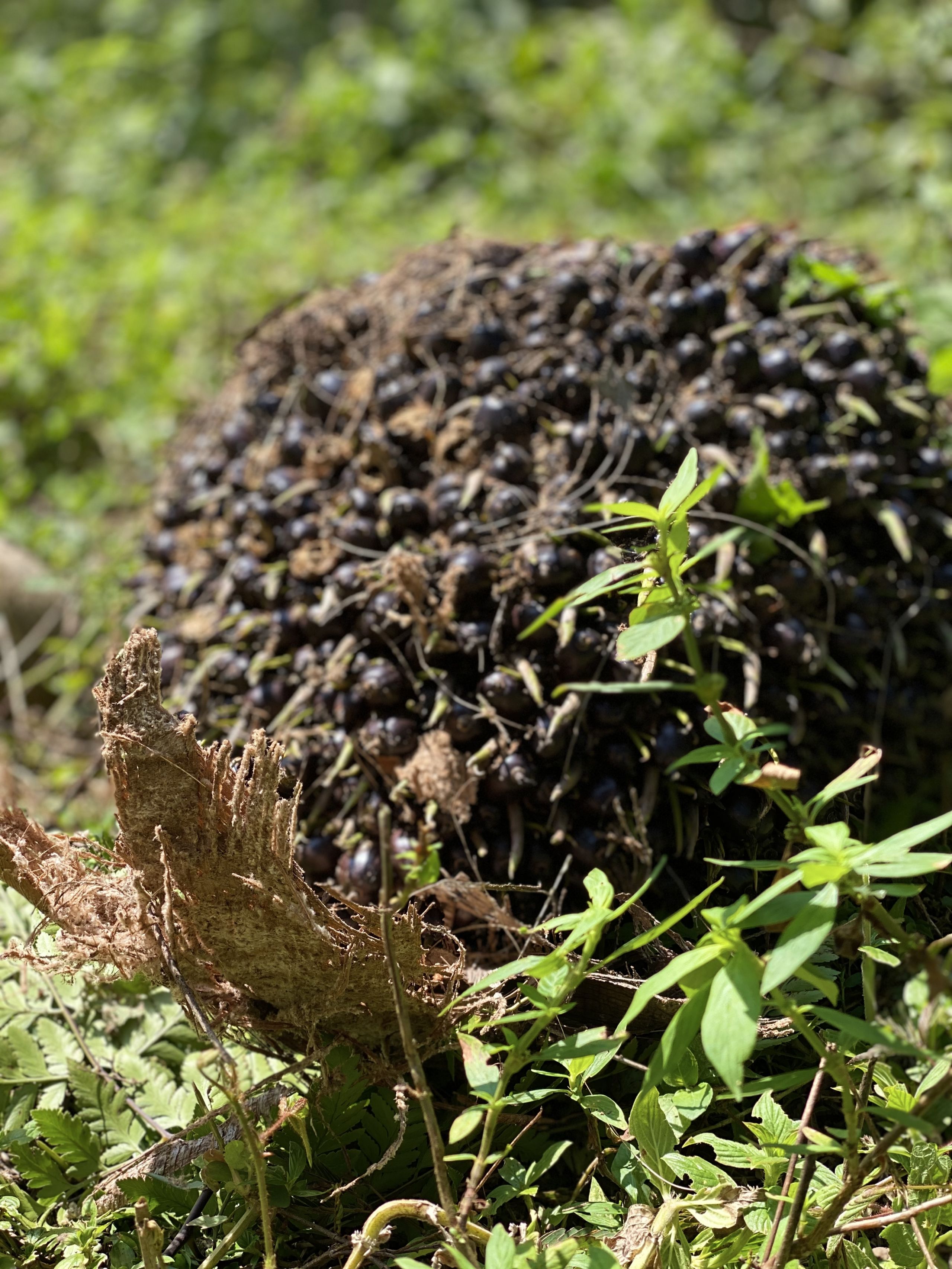

Palm oil clearly has many different uses. In many developing countries it is the miracle crop that supports the economy of the country because of how productive the plant is. Yet, there are numerous environmental groups that are calling for a total boycott on palm oil.
Many organisations say the environmental destruction and human rights abuses caused by palm oil plantations are reasons for this ban. In south-east Asia, reports show that the palm oil industry is the largest driver of Indonesian deforestation. Threatening the natural habitat of the Sumatran tiger and rhinoceros, both animals have been listed as being critically endangered by the International Union for Conservation of Nature (IUCN).
Video driving through palm oil plantations in Linggi.
Video driving through palm oil plantations in Linggi.
I wanted to find out more about the issues surrounding palm oil, so I reached out to Rainforest Rescue. They are a nonprofit organisation based in Germany who are committed to protecting rainforests around the world. Marianne Klute, one of their members explained that their organisation works with campaign groups to campaign for forest conservation, indigenous rights and social progress. I asked Marianne why palm oil was so bad for the environment:
According to her, some plantations deliberately set fires to clear out forests and create land for new palm plantations, leading to severe air pollutions in some parts of Asia. Marianne explains to me that she lived in Indonesia for 15 years and witnessed the growth in the palm oil industry herself. The Indonesian government continues to invest in the industry and continues to increase the amount of land used for palm plantations.
Hearing what she had to say about the environmental devastation caused by palm oil plantations, I wanted to know her opinions on the RSPO. After my conversations with Fay and Ashwin, I got the idea that the RSPO had clear guidelines that growers need to follow to be sustainably certified. Did she think they were doing enough to protect the rainforests and local communities in countries where oil palm is cultivated?
There are a lot of conflicts, social conflicts and environmental complaints.
In short, her response was no. Marianne did not think that the RSPO was doing enough to protect the environment. She believes that if a company does not fulfil the sustainability requirements not much is done in response to this. "There are a lot of conflicts, social conflicts and environmental complaints. They have a compliance mechanism but it's very difficult to go through the process," she said.
In her eyes, the RSPO are not doing nearly enough and we as consumers should avoid using palm oil completely. However, as we will soon see boycotting the use of palm oil might not be the answers to any of the problems.
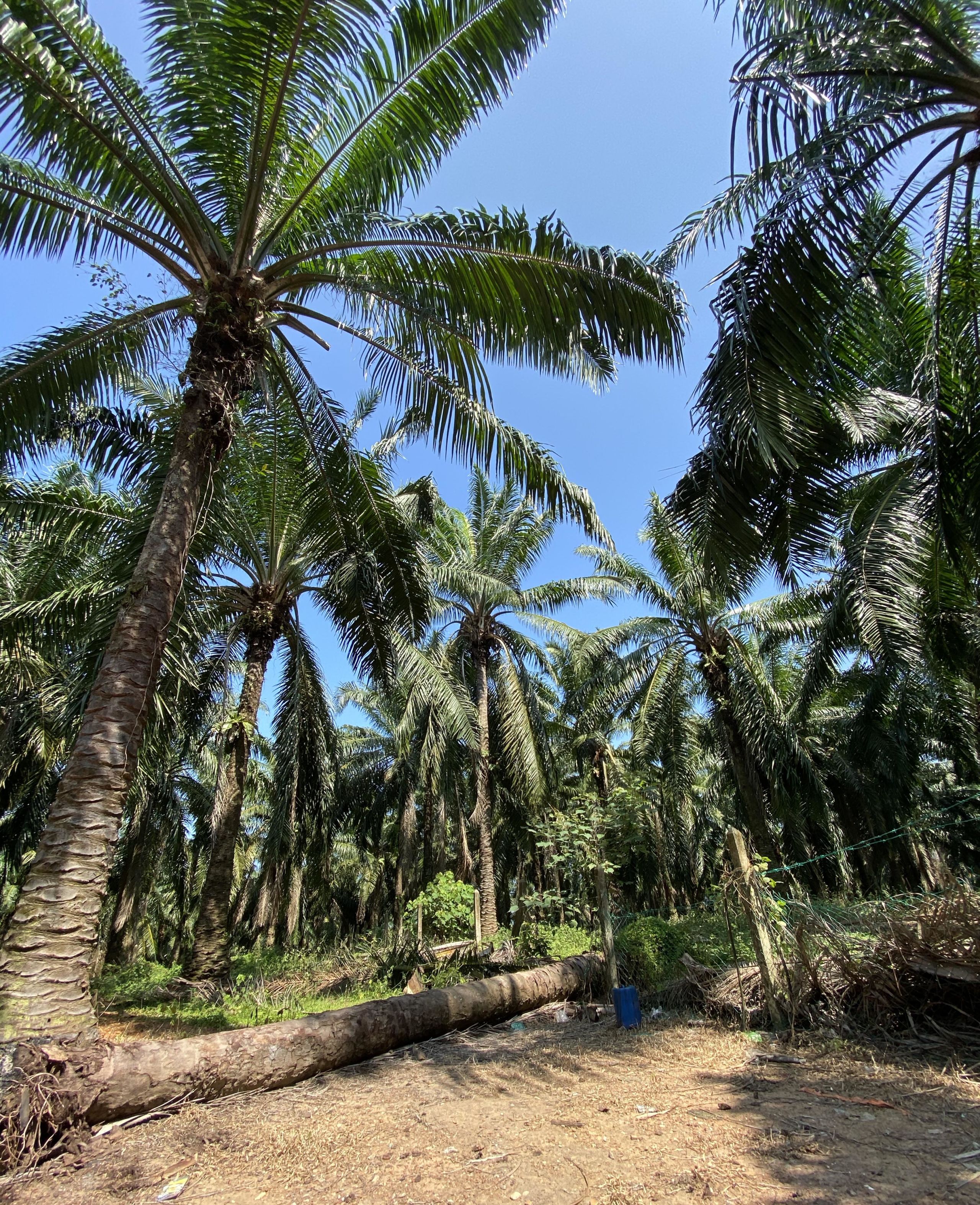
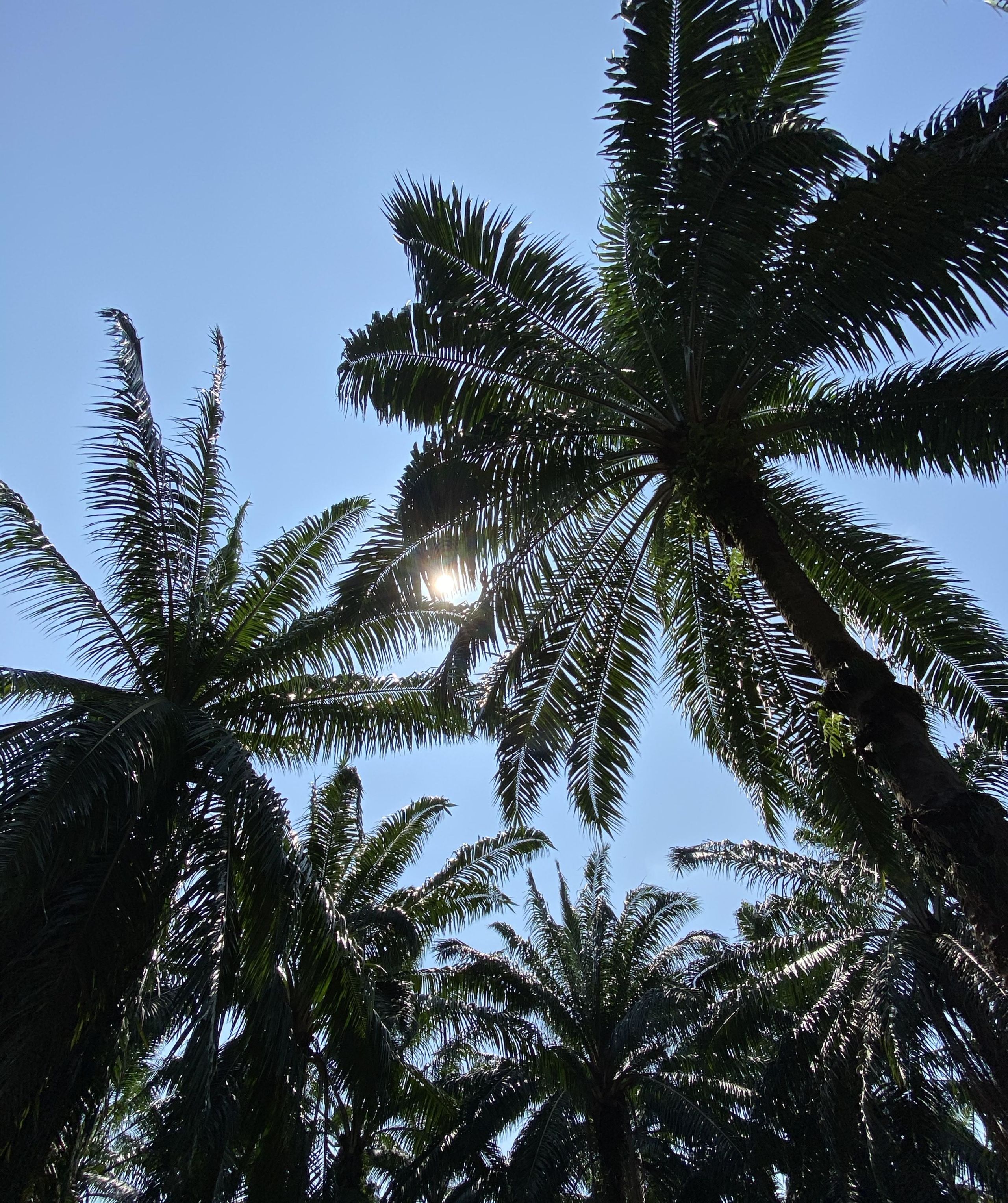



A couple of oil palm trees.
A couple of oil palm trees.

A plantation in Linggi, Malaysia.
A plantation in Linggi, Malaysia.

Close up of palm kernels in the tree.
Close up of palm kernels in the tree.

Plantation full of palm oil trees.
Plantation full of palm oil trees.
Palm oil has always been controversial, but the questions remains; should we have a total ban on the oil? In all my research there seems to be a very strong argument made by various organisations, from the WWF to environmentalist that we should not ban the use of palm oil. The reason for this is simple, the livelihoods of millions of farmers are dependant on palm oil and a ban would essentially terminate their only source of income. Besides that, because palm oil is the most productive oil currently being produced, it actually does less damage to the environment compared to other oil producing crops.
A close up on a bunch of palm oil kernels.
A close up on a bunch of palm oil kernels.
I reached out to conservation scientist Dr Jake Bicknell to get his opinion on this topic. He explained to me that palm oil had received a very bad reputation over the years but mentions that other industries, soybean plantations are doing a lot more damage to the environment. Dr Bicknell talks in length about the impact the soybean industry has had on the environment saying, "when you look at other crops, take soybean for example they are doing a lot of damage to the tropical rainforest in the Amazon"
Even unsustainable palm oil is sustainable
The reason he brings up soybean plantations is because soy farming is responsible for more than double the deforestation of palm oil. Another key point made by Dr Bicknell is the fact that palm oil is such a productive crop. Trees can be harvested all year round and a sprout reaches full maturity after 3 months. Currently none of its competitors comes even close to matching palm oil and replacing it with a different type of vegetable oil could potentially accelerate the rate of deforestation. When explaining this to me Dr Bickell said, "even unsustainable palm oil is sustainable" which perfectly summarises this point.
The RSPO also agrees with this as Fay explained:
It seems that avoiding palm oil could have worse environmental and social effects. The governments of Malaysia and Indonesia both claim that the success of the palm oil industry has played a key role in reducing poverty. For the time being, it appears that palm oil is here to stay and perhaps sustainably produced palm oil is the way forward. Once again I turned to the RSPO, since they are the global standard for sustainable palm oil I asked Fay what can consumers do if they were concerned about the impact of palm oil. She said:
Alternatively, Dr Bicknell advises consumers to look into the carbon footprint of their food. Instead of relying on imported goods that have a high carbon footprint, consumers should purchase locally produced ingredients. For example, Asian consumers should continue to use palm oil because it is grown in the same region. While European consumers should instead look into buying sunflower or rapeseed oil.
I was curious about some of the misconceptions consumers had about the use of palm oil. One of the questions I had for the RSPO was about Orang Utans. Did palm oil plantations play a key role in the killing of Orang Utans in south-east Asia? Sara Cowling from the RSPO told me:
There is no question that palm oil is incredibly versatile and while it may have caused some environmental damage, banning its production is not the answer. From some of the research we have seen, replacing the crop with another type of oil producing vegetable would only cause more environmental damage.
During my research I have come to understand that there are many communities throughout the world that are dependant on the palm oil industry. Hearing how one farmer is able to support his entire family by working on a smallholder plantation, shows why a boycott would not work. It is their jobs that some consumers overlook. The industry might be dominated by large scale corporations but there are thousands of workers who are directly reliant on the industry.
For now it is clear that palm oil is here to stay, without a suitable alternative consumers should instead look to support brands that endorse the growth of sustainable palm oil. At this point in time, that might be the best way to protect the environment.
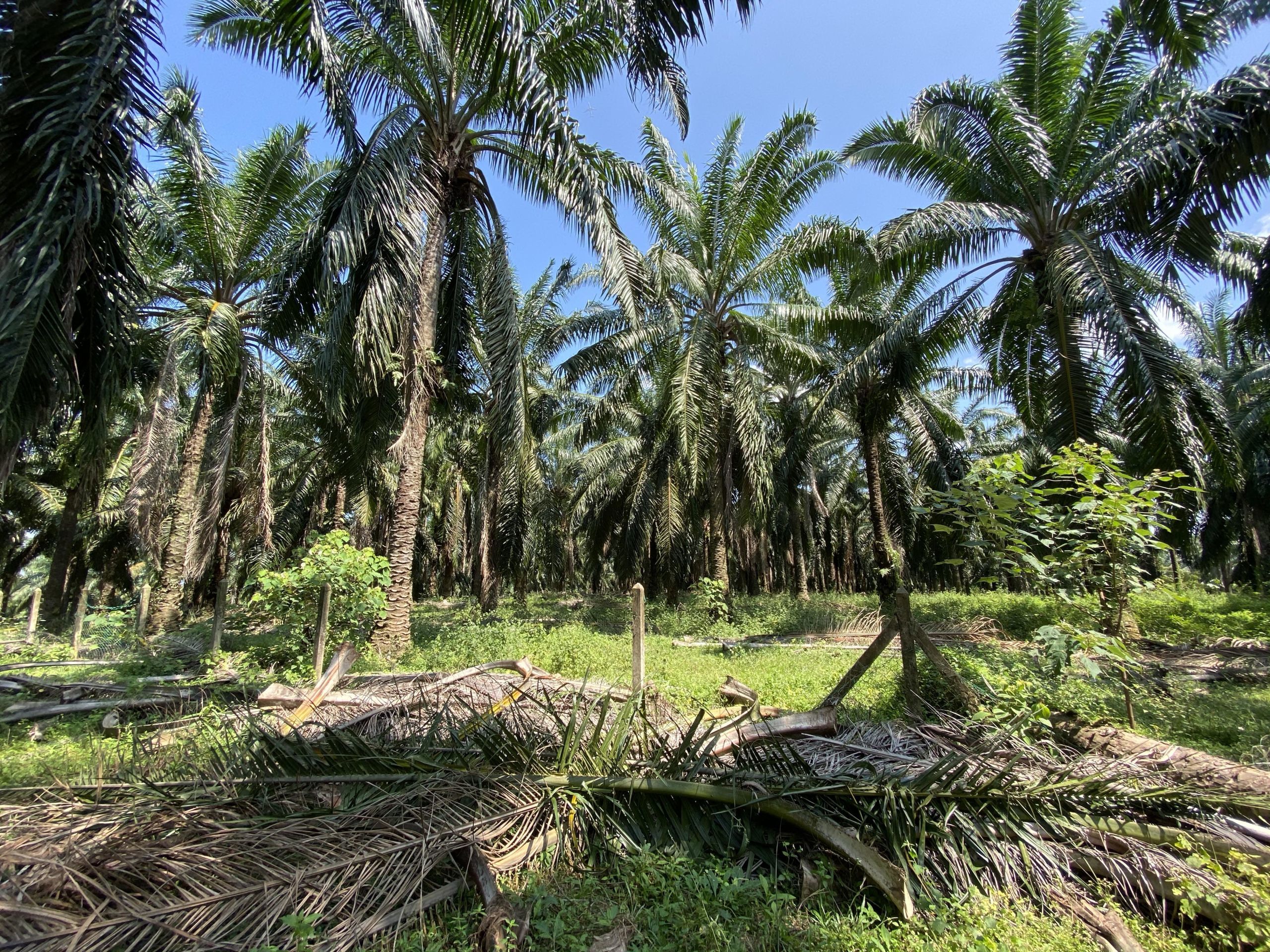
A plam oil plantation in Malaysia.
A plam oil plantation in Malaysia.



All words, pictures, graphics and videos by Shinissa Kaur.
Built with Shorthand.
